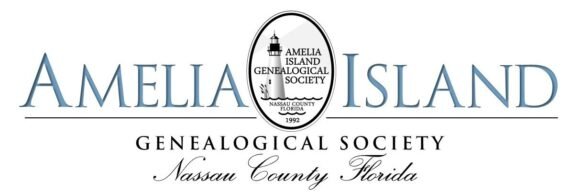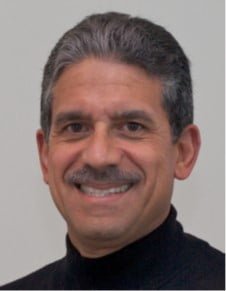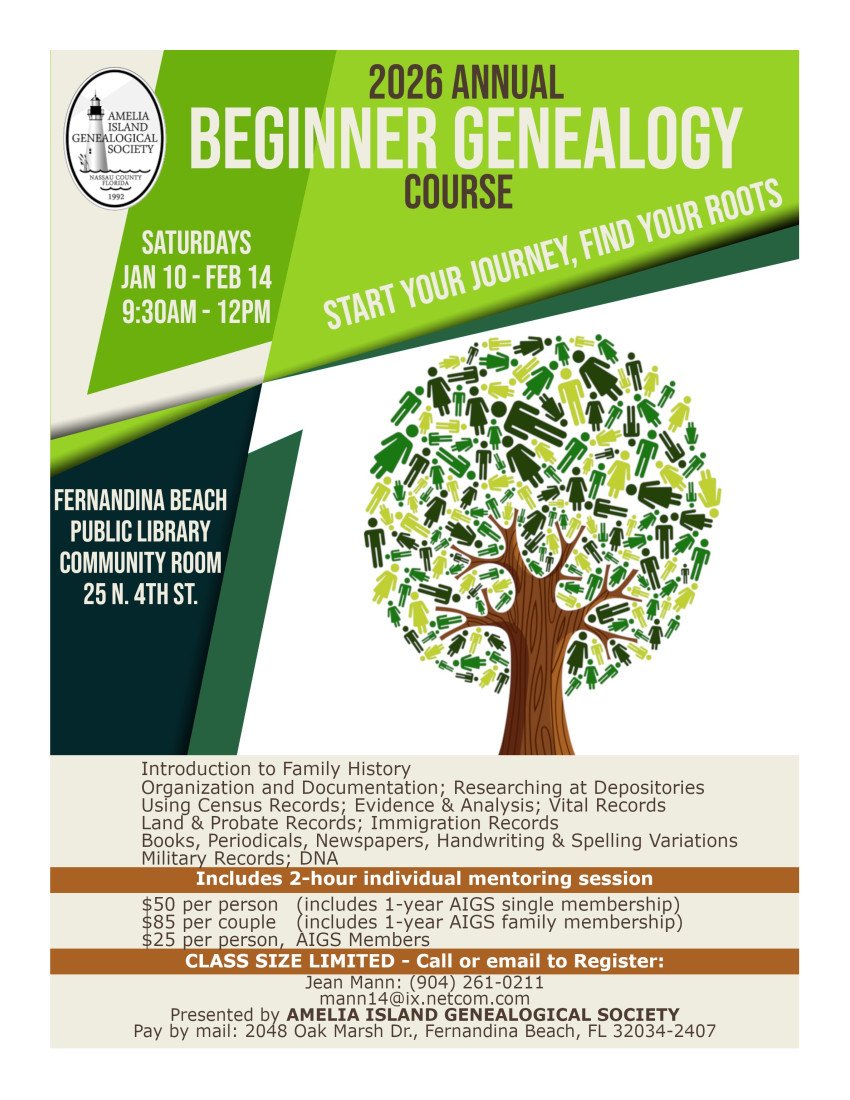Introduction to Family History and Census Research
Introduction to Family History Marcia will start this session out with an introduction to the Amelia Island Genealogical Society membership benefits as well as providing a brief look at the AIGS website. Once this has been done she will introduce the class to getting started with genealogy in the right way. Building Your Family Tree Using Census Records Whether you are a seasoned genealogy researcher or a brand new researcher, understanding the basics of census research is essential to finding your ancestors. While the examples in this post are from U. S. census records, the tips and strategies apply to your census research for any country. Class Instructor: Marcia Pertuz Marcia Fleming Pertuz is a retired elementary school teacher and principal. She serves as the chair of the AIGS Library Committee, is currently the registrar for the Princess Amelia Chapter of Colonial Dames XVII Century and is an application reviewer for the Florida Pioneer program of the Florida State Genealogical Society. Marcia has been doing genealogy for over 40 years. She holds a Certificate in Genealogical Research from Boston University and participated in the 18 month Professional Genealogy Online Study Group (ProGen). Her personal research areas of interest include Pennsylvania, Colonial New England, Columbia, Spain, France, Poland and Slovakia. Marcia is currently a member of the Board of Directors of the Amelia Island Genealogical Society and is currently chairman of the Library Committee.


